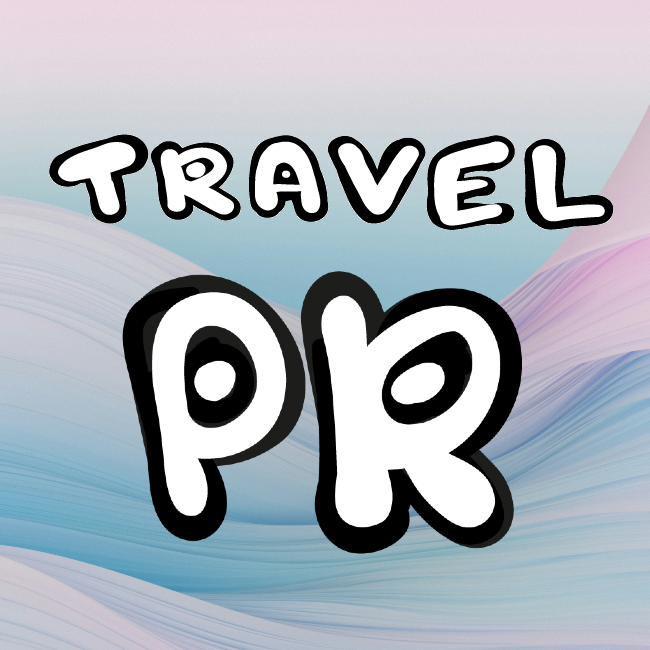Alexandra Launais • August 26, 2025
Gaining Visibility: PR Tactics for Independent Travel Agents in the Media Landscape
- Travel PR Expert Panel

Author: Alexandra Launais
Alexandra is currently a student at the University of California, Santa Barbara, pursuing a degree in communications. She has hands-on experience in social media marketing and administrative coordination and is passionate about branding and storytelling. At PR ON THE GO, she is eager to expand her knowledge of public relations and contribute to this media startup's fashion and travel sectors.
With the rise of technology and social media, we are constantly being bombarded by content at all times. Influencers, bloggers, and traditional media have shone a spotlight on hidden gems, small towns, and off-the-beaten-path destinations, influencing more and more people to get out and discover the world. But in our digital age, planning trips can prove to be difficult as travelers are overwhelmed by the multitude of websites, services, and videos.
Going back to more traditional services, such as travel agents, can reduce the headache for travelers and provide invaluable service to planning memorable, stress-free vacations. In recent years, there has been a resurgence in independent travel agencies. Although they cannot compete with booking sites in terms of reach, they excel in providing clients a more personalized travel experience, supporting their clients throughout their journeys, anticipating any problems allowing travelers to get more out of their trips.
Today’s travelers crave authentic, unique, and personal trips independent travel agents can provide this for travelers with their access and vast knowledge. Reverting back to this trusted service is the answer to travelers' grievances.
I asked our PR and growth experts: How can independent travel agencies gain exposure when competing with well-known travel platforms? What are effective PR tactics that can bring visibility to their services? How can travel agents use social media in an authentic way to highlight the value of their services while balancing engaging destination content to hook travelers’ interest?
Here are the experts' insights.
- Win over a very small segment of the market
- Human stories and community
- Cover the regional growth through tourism
- Treat client stories as currency
- Individuality and high expertise
- Embrace local tales, not only locations
Win over a very small segment of the market
Emily Reynolds-Bergh, Owner at R Public Relations
"The key to competing with larger organizations is to know your audience really, really well. Develop content that speaks to them directly; your goal should be to win over a very small segment of the market, rather than the entire pool of potential customers. The saying “there’s riches in the niches” exemplifies this concept well! Use geotargeting in your specific region, work with local and regional publications, and post lots of videos with helpful content to build an audience. Your content should be 50% helpful and 50% aspirational for the best possible results."
Human stories and community
Miguel Angel Gongora Meza, Founder & Director at Evolution Treks Peru
"The most disastrous thing that independent travel agencies do is to attempt to imitate the huge booking platforms. The war on speed, volume, or the discount is no win. Their area is in storytelling and community. The foundation of a good PR plan is human stories of people who work in the agency and travelers whose experience was changed. An in-depth article in the newspaper of local or regional nature may be much more weighty than the use of thousands of dollars to display generic advertisements online. When an agency assists a family to book a trip to Machu Picchu that also does include a donation to the welfare of the porters or collaborates to offer genuine homestays with a main cooperative of a native group, that is a story with depth and newsworthiness that the large platforms can not duplicate.
The social media should not be another billboard but a place where one shares the stories that a guide with knowledge can tell. Posting of videos on cultural practices that have been ignored, backstage on how to prepare to go on a trek or personal testimonies of locals provide credibility and relatability. A minute of a porter describing the meaning of fair wages to his family can be more touching to the audience than the destination reels. It is the trick of providing inspiration and transparency once again displaying to the travelers that the agency is not merely pitching vacations but protecting the communities that provide meaning to the vacations."
Cover the regional growth through tourism
Suvrangsou Das, Co- Founder & CEO at EasyPR LLC
"Regional economic stories are a source of power that is not fully utilized by independent travel agents. A pitch that links bookings to quantifiable changes in a local economy will receive coverage much more quickly than a typical destination pitch. As an example, when an agent points out that their clients would spend an average of 1,200 dollars per trip in one of the small towns along the coastline, which will lead to a 20 percent increase in seasonal revenue to the local vendors, they are not only selling a travel package, but rather a business story. The reporters that cover regional growth can display the direct effect of travel with those numbers, and the source is the agent, who can provide the numbers that cannot be provided by anyone.
I have observed agents use this strategy and they can measure the results in a few weeks. One feature in a local business newspaper resulted in over 40 new enquiries to one client with half turning into paid bookings. Its rare benefit is that local vendors spending cannot be tracked by large booking sites whereas they are able to be tracked by independent agents who deal with clients directly. This places them in a special stand in media discussions whereby the authority supported with practical data creates visibility."

Pitch your brand to 3,000+ travel journalists. PR ON THE GO provides you with a spreadsheet database of over 3,000 travel editor contacts.
Get the PR ON THE GO Travel Magazines Media List hereTreat client stories as currency
Hone John Tito, Co-Founder at Game Host Bros
"The strongest PR angle is simple: treat client stories as currency. Online booking services will never be able to compete with the story of a family vacation that was saved by a last-minute diversion or an agent catching a visa mistake before it ruined a vacation. Because of this, agencies ought to sell such stories to regional and local media as human stories sell better than rate comparisons.
On social media, travel agents must also avoid being tempted to follow the influencer style. Share behind the scenes raw moments of working on a clients itinerary or how you just figured out a logistical challenge, in real time. Such a degree of authenticity becomes the main distinguishing feature of glossy travel websites.
One other strategy that is not used often enough is partnerships with specialty businesses. A local bookstore that has an author tour overseas or a winery that provides regional tasting tours gives agencies something that can never be duplicated by a platform. The output that is produced is not purely destination-oriented, but relationship-oriented which the booking engine will never feature.
The point is that independent agencies will never be able to compete with the advertising budgets but they can compete with the trust, story and evidence of service. These are the fields that would bring about the word of mouth online, which remains the most effective network of this kind of business."
Individuality and high expertise
Cal Singh, Head of Marketing & Partnerships at Equipment Finance Canada
"The independent travel agencies have the prospect of exposure, which the large platforms do not provide, i.e., individuality and high expertise. Presenting the media outlets with the stories about weird travel experiences or new trends, or obscure destinations to attract the attention, it is useful to pitch the story to them. The need of journalists is the new and topical content associated with the interests of travelers. Moreover, this visibility might be achieved on a low budget, as it is possible to create a partnership with local businesses or small influencers, or tourism boards. This strategic outreach will place your agency as the expert and create awareness to the potential clients who would appreciate personalized service.
The best PR instruments of the autonomous agencies begin with a convincing and persuasive narrative of what is so special about you. Share your experience and pitch an idea to travel writers about new trends, secret spots or customized travel. A partnership with other brands or influencers with whom you share the same opinions will lend credence and outreach to your agency. You are also able to engage in exclusive events, e.g. in webinars or virtual travel experiences, as a means of establishing relations and interest. Such PR activities will make your agency the expert and will improve long-term relations with the media and prospective customers.
To execute social media in a genuine way, share behind-the-scenes peek of how you put together trips and how you attend to the needs of your customers. Explain the advantages of personalized service by comparing and contrasting with life experiences and testimonies. In the interim, it should be filled with elements of non-mainstream destinations and local secrets that cannot be found on big sites. That gives the value and the interest of a sum. Interact with your followers by replying to their queries and comments and post something that they can relate to. The fact that you are going to add some uniqueness to each trip will make your followers more eager to entrust their skills to you and make their reservations in your tour."
Embrace local tales, not only locations
Duman Zhumagulov, Owner at BoxStar Movers
"Travel agents tend to forget brand stories: they keep focusing on the destination.
They connect not with the company but with faces, voices, and real experiences.
I always suggest agents consider themselves as "local storytellers" rather than salespeople.
Pitching micro-stories to local outlets, such as “How We've Helped a Family Cross Europe with Two Toddlers,” is much better than generic travel advice.
These smaller successes tend to be picked up because they're very personal and useful.
So on social media, don't just show beach images, but write down how you felt when it all happened, what went right, what went wrong, and how you fleshed it out.
You're not selling a vacation; you're solving problems that your clients never even thought would come.
And combine with micro influencers that are applicable to your audience, not just the biggest name you can find.
If someone thinks they're "getting to know" you, they won't be comparing you to Expedia anymore; they'll be texting you first."
#PRontheGO
Subscribe to the PR ON THE GO newsletter.
Receive the latest media news in your inbox. Discover journalists and start pitching!